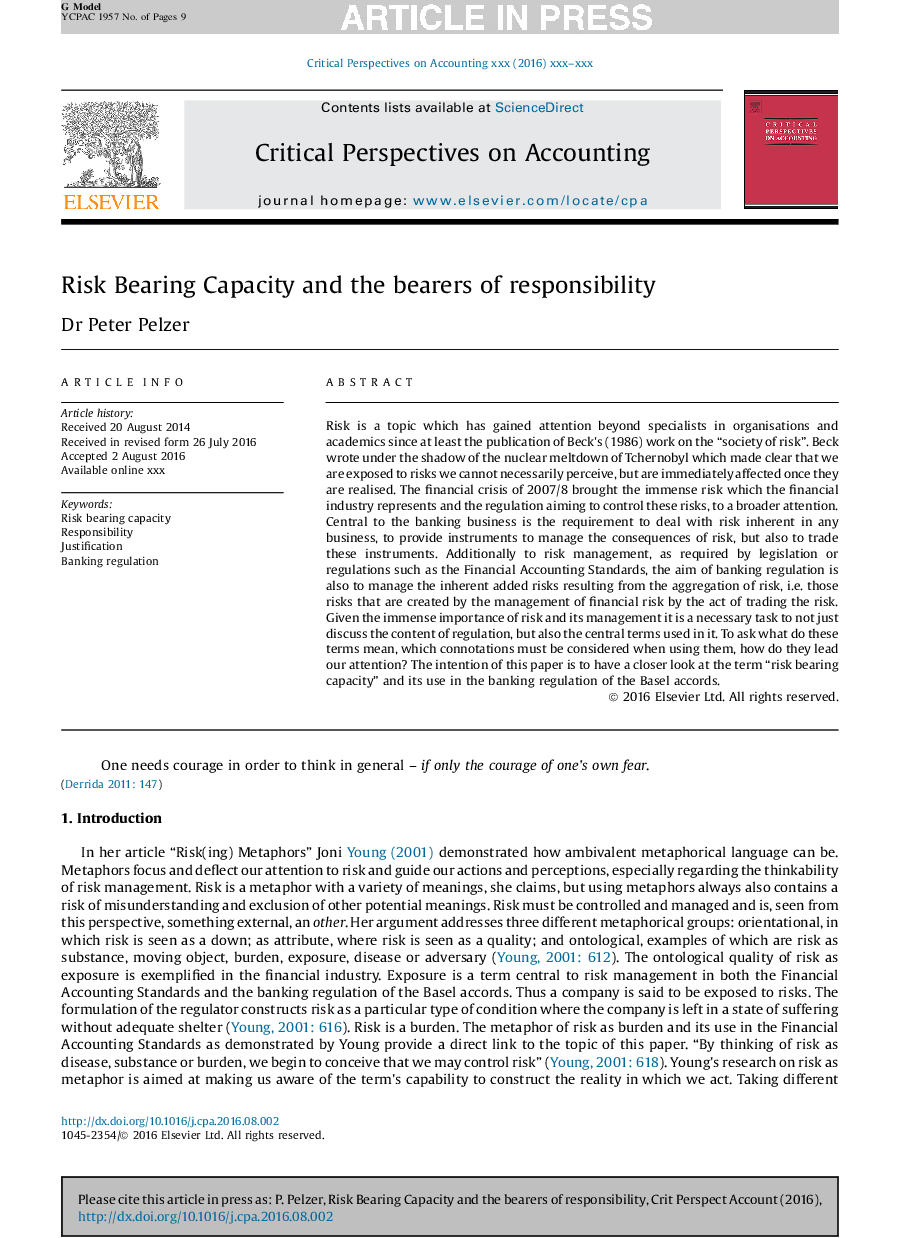| Article ID | Journal | Published Year | Pages | File Type |
|---|---|---|---|---|
| 7411983 | Critical Perspectives on Accounting | 2018 | 9 Pages |
Abstract
Risk is a topic which has gained attention beyond specialists in organisations and academics since at least the publication of Beck's (1986) work on the “society of risk”. Beck wrote under the shadow of the nuclear meltdown of Tchernobyl which made clear that we are exposed to risks we cannot necessarily perceive, but are immediately affected once they are realised. The financial crisis of 2007/8 brought the immense risk which the financial industry represents and the regulation aiming to control these risks, to a broader attention. Central to the banking business is the requirement to deal with risk inherent in any business, to provide instruments to manage the consequences of risk, but also to trade these instruments. Additionally to risk management, as required by legislation or regulations such as the Financial Accounting Standards, the aim of banking regulation is also to manage the inherent added risks resulting from the aggregation of risk, i.e. those risks that are created by the management of financial risk by the act of trading the risk. Given the immense importance of risk and its management it is a necessary task to not just discuss the content of regulation, but also the central terms used in it. To ask what do these terms mean, which connotations must be considered when using them, how do they lead our attention? The intention of this paper is to have a closer look at the term “risk bearing capacity” and its use in the banking regulation of the Basel accords.
Related Topics
Social Sciences and Humanities
Business, Management and Accounting
Accounting
Authors
Peter Pelzer,
